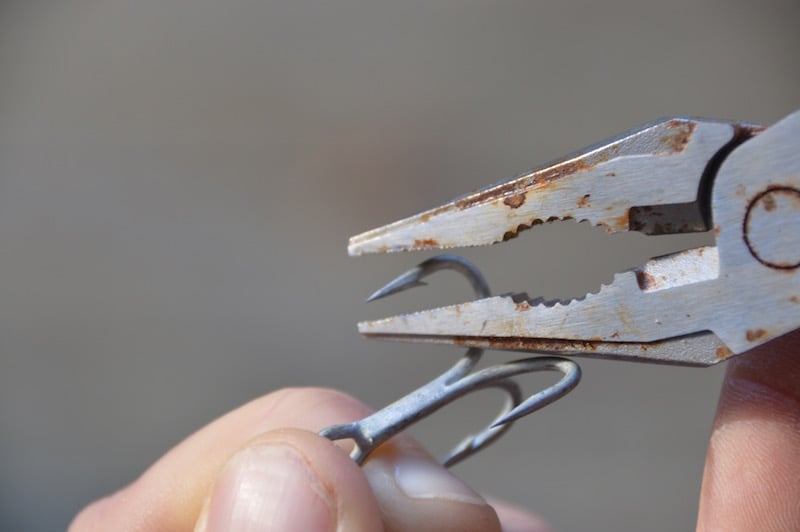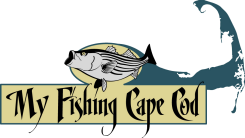More...
1) Practice Catch & Release

On the Atlantic Coast, there are approximately 3 million recreational striped bass fishermen; outnumbering commercial fishermen 300 to 1. This ratio reflects the need for responsible fishing habits by recreational fishermen.
Female striped bass reach sexual maturity at age eight, and are able to produce 850,000 eggs. Releasing stripers over thirty-two inches in length is a great way to ensure a healthy population of breeding females.
2) Don't Forget Your Pliers

Successful outings begin at home, with ample preparation. While there are countless tips to make catch & release quicker and easier, carrying a pair of pliers may be the easiest of them all.
Not only can pliers make unhooking a fish easier and safer for you, it can also minimize time spent handling fish prior to release. Quite simply, it is irresponsible to go fishing without a set of pliers.
Other considerations should include:
3) Park Responsibly

Parking responsibly can not only keep your favorite spots secret, but can limit damage to shoreline landscape.
For example, American Beachgrass is critical for preventing erosion of shorelines. Each year millions of dollars, and numerous man-hours, are spent replenishing beach grass that has been damaged by vehicle and pedestrian traffic.
Using appropriate parking/walkways/access-points will also convey to property owners and caretakers that you care about the environment, and intend to be responsible. Many fishermen can attest that this is the easiest way to obtain permission to fish in private areas that are typically restricted to the public.
4) Don't Leave Trash

Any secretive fisherman is well aware not to leave traces of human activity, as trash accumulation often indicates a good area to fish. There are many first-hand accounts of fishermen working the beaches with little success until they stumble upon beach trash; which offered a good fishing hole.
Any spent fishing line can pose a hazard to aquatic life, and make return visits more challenging. As a rule of thumb, any item taken to the beach should also be taken away to protect the environment and ensure productive return visits.
5) Take Faster Photographs

While digital technology offers an opportunity to take fishing pictures and share your experience with others, it prolongs time a fish is kept out of the water.
While taking a photo is better than harvesting a fish, it also limits the success of catch and release efforts. Having a friend prepare to take a photograph prior to bringing a fish to shore can decrease this time.
For those of you using GoPro or DSLR technology, using video (one-touch record buttons) can record the entire event, and limit time spent posing with fish for photographs. Most video editing software will allow you to export still frame pictures from video files.
6) Educate Yourself & Others
Keeping up with current fishing research is a fantastic way to spend the off-season, as knowing is half the battle.
While most would say being able to consistently catch fish is a sign of a good fisherman, sharing your knowledge and experience can be equally important. Helping other fishermen improve their own abilities fosters the “community” aspect of fishing.
Educating others about sportsmanship and sound fishing practices can greatly improve the health of our environment and fish sustainability.
7) Support Conservation Efforts

You are reading this, which indicates you recognize the importance of a conservation-conscious online fishing community. While this is a great start, there are many other conservation groups that could use your support to help them achieve their goals – most of which ultimately will benefit you.
Staying involved with local legislation, conservation and research groups is a great way to network, but more importantly, have a voice that supports issues you care about. These groups come in many forms, ranging from one time monetary donations, regular meetings, online forums, physical effort, etc.
If you don’t have time, make a donation. If you have time and no money, lend a hand. Simply taking your time to hear what issues a group supports can help.
Here are some groups to help get you started:



How about breeding assistance .. anything we can do to increase spawning efficiency.
Reestablish beach bio health after beach replenishment clams, sand fleas, surf crabs, ..restart the food chain.